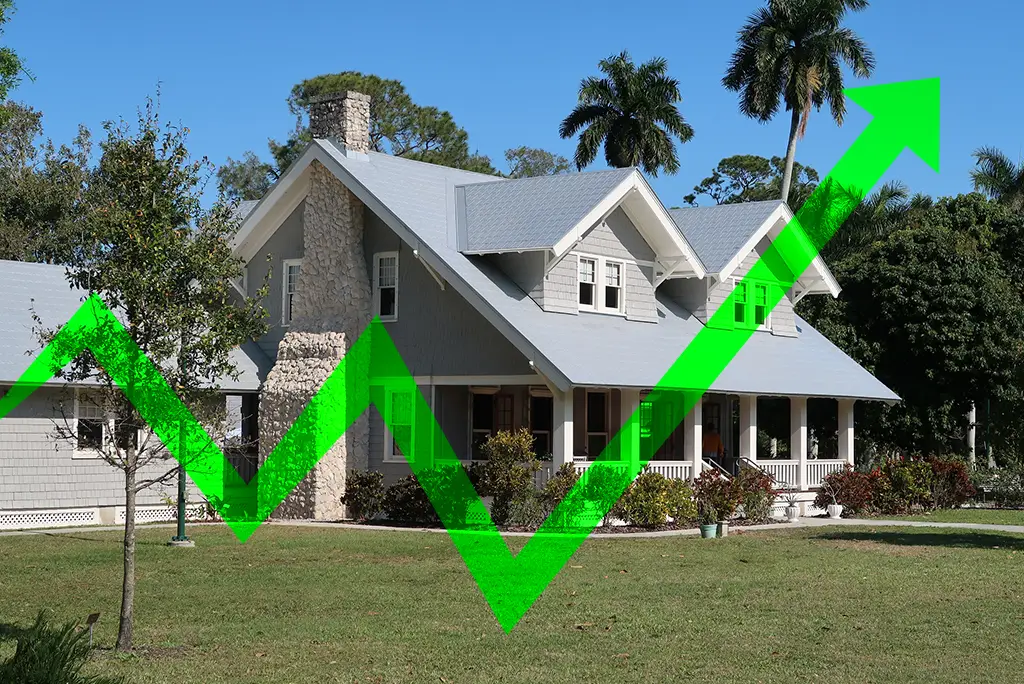Mortgage News Daily reports that the average rate on the 30-year fixed mortgage had risen to 7.1%, surpassing the 7% threshold once again. The cause for this increase was attributed to growing concerns that inflation shows no signs of slowing down. This in turn pushed bond yields higher. As mortgage rates typically follow the yield on the U.S. 10-year Treasury, it is not surprising that they have been affected by this trend.
Matthew Graham, the Chief Operating Officer at Mortgage News Daily, expressed concern about the trend. He stated that rates have continued to move in response to economic data, which has not been favorable. He warned that upcoming reports could be even more significant in terms of their impact on rates.
Rates exceeded 7%, the highest level seen in over 20 years, last October. However, they decreased over the following months as inflation appeared to be easing. By mid-January, rates had reached 6%, which prompted a surge in buyers signing contracts on existing homes. The National Association of Realtors says that, in December, the number of homes sold rose by 8%. This is surprising because it’s usually a good indicator of how the economy is doing.
However, the past four weeks have been challenging for the housing market. This is because the rates have increased by 100 basis points since the start of February. The monthly payment for a $400,000 home with a 20% down payment on a 30-year fixed loan has increased. The increase is around $230 more than it would have been just a month ago. The payment includes principal and interest. In comparison to a year ago when rates were around 4%, today’s monthly payment is about 50% higher.
As a result of these rising rates, mortgage applications from homebuyers have been declining over the past month. The Mortgage Bankers Association reported that they hit a 28-year low last week. The organization’s President and CEO, Bob Broeksmit, commented on this trend. He stated that higher rates, ongoing inflationary pressures, and economic volatility are causing prospective homebuyers to hesitate about entering the housing market.
At the beginning of this year, the housing market appeared to be recovering, just in time for the traditionally busy spring season, with rates slightly lower. However, this recovery has stalled due to rising rates and other factors. George Ratiu, an economist at Realtor.com, says that a lot of people are taking on a lot of debt, including mortgages, personal loans, auto loans, and student loans. He says that with rising interest rates, the cost of these loans is going to go up, making it harder for people to afford things.
Although rates appear to be moving upward again, there is no guarantee that this trend will continue in the long term. Matthew Graham suggested that if larger economic data points to a friendlier inflation outlook, there could be a correction, but traders would be hesitant to push rates aggressively lower until there have been several months of data indicating meaningfully lower inflation.
Mortgage applications drop because of rising rates
The Mortgage Bankers Association has reported a 28-year low in mortgage applications. This signifies the end of the brief increase in housing market activity earlier this year. Declining interest rates in January prompted this surge in activity.
Bob Broeksmit, the CEO of MBA, said that the recent increase in mortgage rates led to a decline in purchase applications. The activity has decreased for three consecutive weeks. He added that rising rates, inflationary pressures, and market instability have caused some potential homebuyers to hesitate. This has resulted in a decline in purchase applications for three consecutive weeks.
George Ratiu, the senior economist at Realtor.com, stated that the upward trend in rates may continue and even exceed 7% again in the coming months. Ratiu emphasized that the increase in rates will result in higher mortgage payments for real estate markets. This development could intensify the affordability challenge, especially as we approach the critical spring homebuying season.

